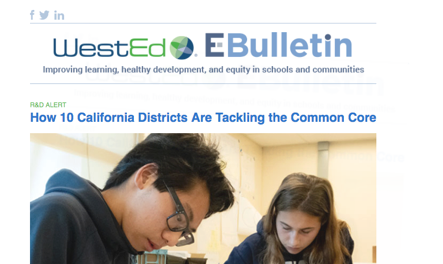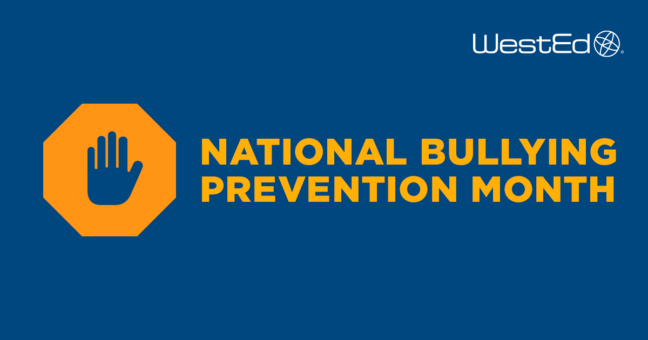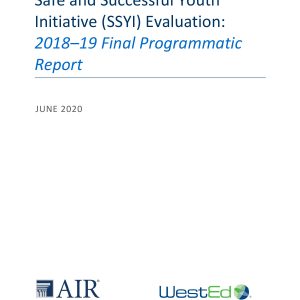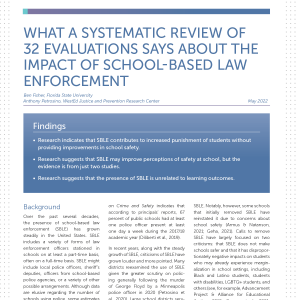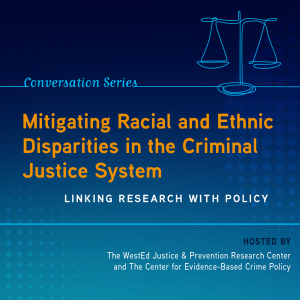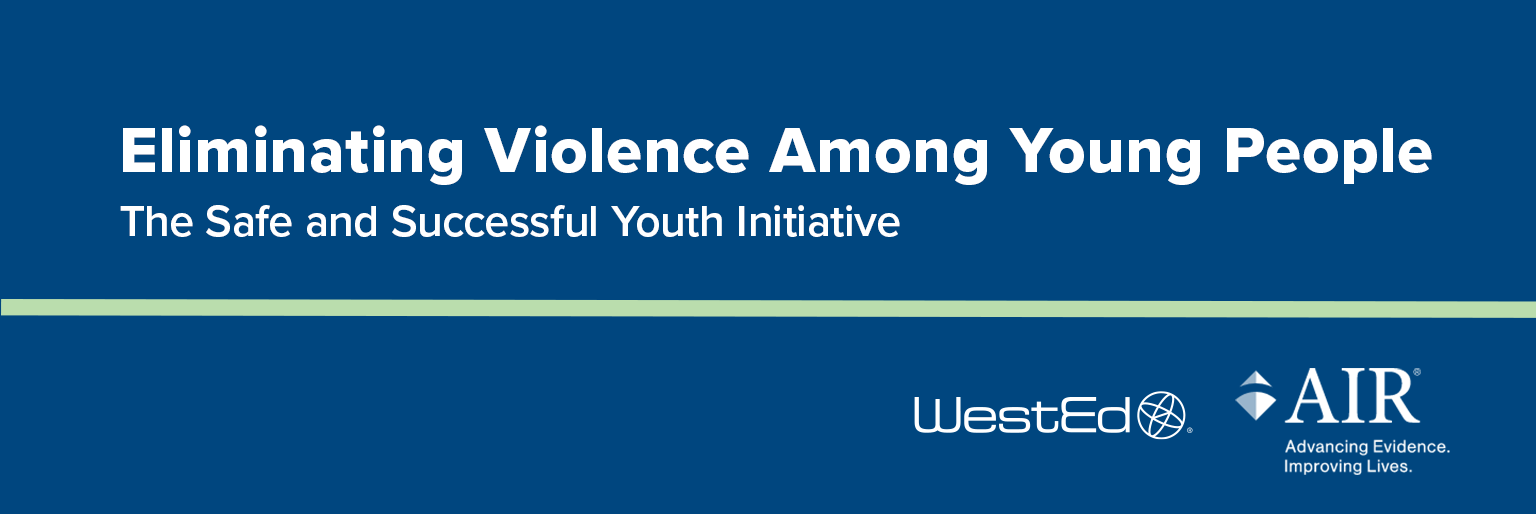
The Safe and Successful Youth Initiative (SSYI) is a multifaceted, community-based strategy that, in partnership with law enforcement, uses a public health approach to eliminate lethal and nonlethal violence among young people who have already committed, and who have often been the victim of, gun and gang violence. SSYI began in 2011 as a signature program under the Massachusetts governor’s office and has since operated within the Executive Office of Health and Human Services (EOHHS). Initially launched in 11 cities and focused on youth ages 14 to 24, SSYI now operates in 14 cities across the state, serving nearly 2,000 clients ages 17 to 24 annually.
Evaluation Partners
AIR and WestEd have served as the statewide evaluator for the initiative since SSYI’s inception. The team has produced numerous articles, briefs, and reports, including cost-benefit studies, that demonstrate SSYI’s effectiveness and broader evidence reviews examining Massachusetts’ unique statewide approach to violence prevention.
Key Findings
- Reductions in recidivism. Compared with youth and young adults who were actively engaged in SSYI services, youth and young adults who were not involved in SSYI but had similar violent crime backgrounds were 42 percent more likely to be incarcerated. Read the recidivism comparative study.
- Reductions in violent crime for cities. Since SSYI’s inception, rates of violent offenses and victimization in non-SSYI cities saw modest decreases or were relatively stable. Conversely, in cities with SSYI funding, rates have steadily declined since 2012. Read the SSYI evaluation report.
- Reductions in violent crime for individuals. Clients enrolled in SSYI had 36 percent fewer violent offenses and 20 percent fewer non-violent offenses than did young men identified for the program who never enrolled. Read the SSYI evaluation report.
- Client engagement. Self-reported survey data from SSYI clients shows that SSYI provides these young men with resources and supports they value, if not depend on. Participation in SSYI facilitates meaningful changes in the lives of participants, decreasing the likelihood of future involvement with violence and improving their prospects for future personal, social, economic, and physical wellbeing. Read the recidivism outcome report.
- Cost benefit to cities. When a dollar value is applied to the benefits of crime reductions from SSYI in Boston and Springfield alone, research indicates a savings of almost $15 million in incarceration, hospital, and other costs based on investment in the SSYI program in these two cities from 2011 to 2013. Read the cost benefit report.
In addition to the ongoing evaluation studies, the research team, along with David Weisburd from George Mason University, received funding from the Office of Juvenile Justice and Delinquency Prevention to examine:
- how police involvement in the SSYI impacts cultural norms around violence in disadvantaged neighborhoods
- the impact of SSYI funding on violent crime compared to similar cities in the state
- how outcomes are moderated by other local, state, and federal violence prevention initiatives targeting the same communities
The research team found that SSYI cities experienced a statistically significant drop of 2.8 violent crimes each month per 100,000 residents relative to 32 comparison cities. Other findings include a strong correlation between concentrated disadvantage and cultural norms of violence among residents in the treatment cities. In addition, negative perceptions of police legitimacy and norms of violence were similarly consistent across the SSYI communities.
Read the Community-Based Violence Prevention Study.
Future Research
The latest study of SSYI explores the client-level impacts of SSYI’s outreach, case management, and services targeted to meet each client’s priority needs. The study examines the core components of SSYI’s Theory of Change, developed through previous evaluations of the initiative using lifetime offending histories and client case management data. Study findings forthcoming.
Principal investigators for the SSYI study are Anthony Petrosino and Trevor Fronius from WestEd’s Justice and Prevention Research Center, and Patricia E. Campie and Nicholas W. Read from AIR.
